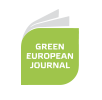
- Diese Veranstaltung hat bereits stattgefunden.
EU-Russia-China-Central Asia strategic dialogue on connectivity
4. Dezember 2019, 10:00 - 16:00
DGAP Workshop
EU-Russia-China-Central Asia strategic dialogue on connectivity
The Future of Eurasia: Mapping out concepts, practices for possible EU-Russia-China cooperation
09.30-.10.00: Registration
10.00-10.15 am: Welcome
Ivan Timofeev, Director of Programs, Russian International Affairs Council. (RIAC)
Milan Nic, Head, Robert Bosch Centre for Central-Eastern Europe, Russia and Central Asia, German Council on Foreign Relations (DGAP)
10.15-10.30: Introduction to the Workshop
10.30-12.00: Eurasia: one continent, multiple orders: between geopolitical competition and the need for shared rules
In Eurasia a fragmented system of multiple regional orders is emerging. While infrastructure, finance and trade ties are growing, the continent still lacks an overarching institutional and normative framework based on a common understanding of the future “rules of the game”. Particularly the EU’s rule-based liberal model faces the Russia ́s Greater Eurasia idea and China ́s Belt and Road Initiative vision as alternative, competing and yet geographically contiguous concepts. This opening panel will discuss what are Europe ́s, Russia ́s and China ́s respective visions for a future Eurasian economic, political and security order, what are differences and potential overlaps among the three concepts and how could geopolitical divergences be overcome. Furthermore, panelists will discuss how new institutions, shared norms and standards for regional cooperation in fields likes security, energy, trade and transport could be agreed upon and implemented, including but transcending existing one like the OCSE, the CSTO or SCO.
Speaker:
– Ivan Timofeev, Director of Programs, Russian International Affairs Council. (RIAC)
– Reinhard Bütikofer, Member of the European Parliament, Co-Spokeperson of the European Green Party
– Feng Shaolei, East China Normal University (proposed) (Alternative: Yang Cheng,)
– Chair: Toe be decided upon
12.00-12.15: Coffee Break
12.15-13.45: Connectivity without governance: Energy, Transport and Trade – integrating or fragmenting Eurasia?
This panel will break-up the discussion on Eurasia’s different understandings of order focusing on the connectivity fields: energy, transport and trade. Without a consensus over norms, standards, market regulations and access, each of these fields bears the potential to fragment Eurasia in separated regional markets, and increase geo-economic competition among China, Russia and Europe over resources, trade shares, transport routes and power grids. The Panel will hence discuss whether different European, Chinese and Russian initiatives are irreconcilable or bear the chance for possible convergence in these three fields. Is a EU-EAEU trade agreement possible in the long term? What are the main regulatory, financial and infrastructure bottlenecks along the TEN-T-EAEU-BRI transcontinental corridors? What is the status of cooperation between the EAEU and the BRI in the energy and transport field? How can a future EAEU unified energy, electric and transport space help Russia and Central Asia ́s integration in Asia ́s and Europe ́s markets?
Speaker:
– Evgeny Vinokurov, Chief Economist at the Eurasian Fund for Stabilization and Development, RIAC Member
– Kirsten Wetsphal, Senior fellow, German Institute for International and Secuirty Affairs (SWP)
– Dr. Sanjaasuren Bayaraa, Director Central Asia Economic Cooperation Institute (CAREC)
– Chair: Jacopo Maria Pepe, DGAP 13.45-14.30: Lunch
14.30-16.00: Regionalism without institutions: The Eastern Europe- Caucasus-Central Asia nexus as a test-field for a cooperation agenda?
This panel will focus on the space including Central Asia, the Caucasus and Europe ́s eastern neighborhood, commonly known as Central Eurasia. In fact, Europe ́s, Russia ́s and China ́s different visions for Eurasia as well as different concepts of connectivity all meet, clash and overlap in this remerging geo-economic and geopolitical nexus. For their part, Central Asia ́s new interest in greater intra-regional cooperation and growing trans- Caspian and Black Sea-Caspian Sea ties could represent the first attempt to develop a form of self-sustaining regionalism which could help foreign powers cooperate, but not engage in destructive rivalries. This regionalism lacks however institutions and governance mechanisms. The Panel will discuss how and if a synchronization of the EU Connectivity Initiative, the Eurasian Economic Union and the BRI, could foster or hamper deeper and more stable cooperation among Central Eurasian countries and how Central Eurasia’s new regionalism “without institutions” could for its part facilitate the creation of a common European-Russian-Chinese governance agenda at continental level.
Speaker:
– Iskander Akylbaev, Executive Director, Kazakhstan Council on International Relations
– Yang Cheng, – Professor, Shanghai International Studies University
– Stanislav Pritschin, Research fellow at the Center for Central Asia and Caucasus Studies, Institute of Oriental Studies, Russian Academy of Sciences
– Chair: Stefan Meister, Heinrich-Böll Stiftung, Tbilisi Office
16.00-4.00: Wrap-up and Conclusion
This workshop is part of a series of events under the “EU-Russia-China-Central Asia Strategic Dialogue on Connectivity“ Project, initiated by the Robert Bosch Center of the DGAP with the support of Germany ́s Federal Foreign Ministry.















